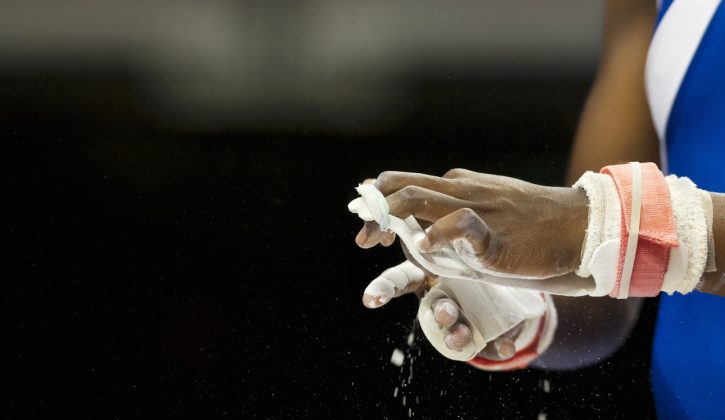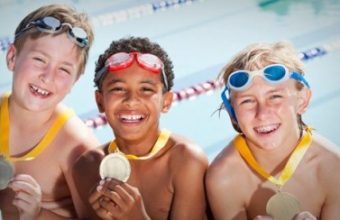“Mom, wait! Here comes Simone!”
I was on my way upstairs with a basket of laundry last Tuesday when my daughter called me over. Simone Biles was about to do her vault routine in the qualifying round of the Tokyo Olympics. I didn’t know that the vault was Simone’s least favourite event. I didn’t know that she had been feeling off. I didn’t know about her history with mental health challenges. And, to tell the truth, I didn’t know very much about gymnastics in general. But I watched her take that vault and land with a big step backward. I saw the concern on her face. And I knew it wasn’t good.
Almost immediately, Simone announced she’d be withdrawing from the team event. The next day she also withdrew from the individual finals. The internet went crazy with many people applauding Simone’s decision to prioritize her own health and well-being in the face of overwhelming expectations. Others called her a selfish quitter who was letting down her team and her country.
And this much is true: there is absolutely an element of psychological resiliency to competing in athletics at an elite level. This is amplified even more when someone is considered to be an overwhelming favourite—the greatest of all time, even. We acknowledge this when we describe athletes in terms of their grit, their heart, their perseverance. We see this in elite gymnasts, tennis players, and clutch pitchers staring down a batter from the mound. We applaud both their athletic skills and their mental fortitude.
We also talk a lot about athletes who choke in the face of pressure. There’s the star quarterback who can’t seem to win a championship. There’s the favourite soccer team who lose the cup in their home stadium. The hockey team who manages to snatch defeat from the jaws of victory after winning the first three of a seven game series and then losing out the rest. (Why, yes, I am a Leafs fan, why do you ask.) This is a part of sports. Did Simone Biles buckle under stress? Yeah, maybe. But you know what? She didn’t have a temper tantrum. She didn’t disparage the officials like we’ve seen athletes do many times over in other sports. She didn’t throw something across the gym in frustration. And she didn’t try to blame anyone else.
Simone realized she did not have “it” this time. She didn’t have the combination of optimal training and psychological fortitude. What’s more, the exceptionally difficult routines she had planned to execute could be extremely dangerous if she had a misstep. She could hurt herself and her team.
So she graciously bowed out.
The end.
She already has four Olympic golds; nobody can take those away from her. But this is likely the end of the 24-year-old gymnast’s competitive career. She won’t become the first woman gymnast to win back-to-back Olympics in 53 years, and we’ll always remember how she dropped out of the Tokyo Olympics. But we’ll also remember how she stood up for her own well-being in the face of enormous pressure and lofty expectations. In walking away from the Olympics, she walked toward the rest of her life.
And this is where a valuable lesson lies for young athletes—or better yet, sports parents. We like to talk about how much children can learn from sports. They learn about working with others; about sportsmanship; about perseverance. They learn to fail and then get back up and do it again. And when we talk about all these lessons, the assumption is that they will carry these lessons with them through the rest of their lives. We understand, in theory, that our kids will continue to have challenges and opportunities long after they’ve hung up their metaphorical (or literal) skates. But many sports parents still get caught up in the moment and lose perspective. I’d urge them to remember the following.
Lessons for Sports Parents
from Simone Biles
#1. This isn’t the Olympics
Simone Biles is an elite and accomplished athlete who understands her own limitations. If she can walk away from the Olympics because she is unable to perform, then perhaps we don’t need to yell at seven-year-olds who are on the brink of heat exhaustion during a t-ball tournament. (I wish I were kidding.)
#2. They can get hurt
When my daughter hit her head at school and suffered a concussion, our family doctor had her sit out for the rest of the hockey season. “She has the rest of her life to play hockey. But she only has one brain,” she said. This advice went above and beyond what the guidance from the hospital was, but seemed pretty sound to me. Youth sports programs have come a very long way when it comes to recognizing the severity of head injuries and concussions. I’ve also seen a growing awareness about the importance of limiting pitch counts in young baseball players. I’m sure other sports have likewise developed policies to protect developing bodies in recent years.
Still, parents, players, and coaches alike can be tempted to push the limits of what’s safe when important games are on the line. (105 pitches in one game for a 12-year-old, ahem, just saying.) No game is important enough to risk a child’s future health.
#3. Their psychological well-being is also important
There’s a certain amount of dusting yourself off and getting back out there inherent in sports. That’s one of the good things about it—it teaches resiliency. But there’s a fine line between pushing yourself to your limit and pushing past it. Simon Biles knows what her limit is. Kids, parents, and coaches don’t always know. Some kids want to be pushed outside their comfort zone—they depend on you to nudge them along; I have a kid like that. Others will dig in and resent you for exerting too much pressure; I also have a kid like that. And sometimes kids do need time and space to work through their own emotions and anxieties, the same way they would need to nurse a sprained ankle. It’s important for us sports parents to always ask ourselves what is truly in the best interest of our child.
#4. Their best is good enough
It could be the Ted Lasso binge I’m on talking, but I honestly don’t thing winning is that important. Granted, when my daughter’s team won her division in a baseball tournament last week, I was jumping up and down and hugging the mom next to me too. But more times than not, my kids’ teams don’t come out on top. But they wake up early on Sunday mornings and practice. They bring sportsmanship and effort and heart to their games. They play hard and have fun. When Penny Oleksiak, the Canadian gold medal-swimmer, came in fourth in the freestyle swim on Friday, the reaction on social media was one of condolences. On Instagram, Penny said, “Y’all don’t be sending me “I’m sorry” messages! I came fourth in the freaking world and went a best time/Canadian record against a field of 52 women! I am not sad at all. Honestly, this is going to make the comeback more fun.”
May all our kids have as much fun playing hard as Penny and show themselves as much grace and self-respect as Simone when times are hard.
Gold medals are optional when it comes to role models.
Tagged under: Sports,Olympics,sports parents,bad sports parents,olympic athletes,competitive sports,athletic kids,when to let a kid quit sports
Category: parenting,family-life,mom-101






